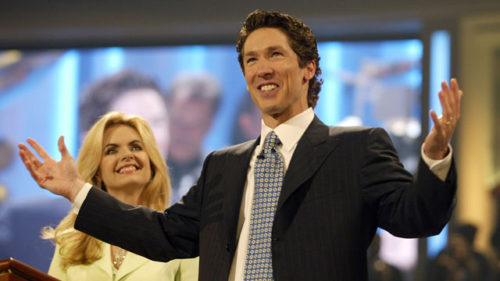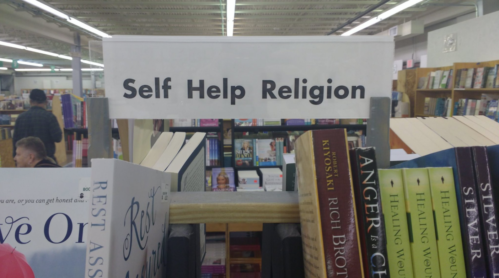
I came to religion for selfish reasons. I was often depressed. I felt empty. I couldn’t find meaning in life. I explored faith because I wanted to receive, not to give. I was looking for a spiritual solution to my lack of direction and purpose. I wanted a faith that would make me feel good.
I did a lot of religious exploration before I became a Christian. I engaged with philosophical movements like existentialism. I went deep with political ideologies like democratic socialism and anarchism. I even explored Buddhism, Islam, and other non-western faiths.
My motivations were very human and self-centered. I wanted a faith that would fix me, that would make me happy and fulfilled. I wanted a system that could give me the right answers and make my life easier.
If I’m honest with myself, most of my faith journey has been a path of self help. My religion was like those books that promise rapid weight loss, financial prosperity, or success in love. Everything was about what I needed, wanted, and craved.

Even my experience of God was a product to be sought after. Buddhist books written for westerners promised me inner peace and clarity. Quakerism offered me ecstatic, mystical experiences that took place in meetings for worship. That sense of presence and power made me feel special, purposeful, and loved. I wanted more of that.
I felt like these religious experiences were making me better. Throughout my twenties I would say, “every day is better than the last.” And it was true. The more I got into spiritual practices and religious devotion – meditation, Bible reading, worship, prayer – the more mature and grounded I felt. Other people seemed to think so, too. I had objective evidence that religion was making me a better person!
My faith was fun and gratifying. It was fantastic to feel successful. My life was filled with meaning and purpose in a way that I had never experienced before. I still had periods of darkness and struggle, but I came out of each one feeling more triumphant than before.
Until I didn’t.
My thirties have been a hard decade. I had my whole sense of mission and purpose called into question. The ministry that I’d been focusing my whole life on fell apart. It was hard to know what to do. I felt so clear about what God had called me to do. And then there was nothing left. Where was God in all this?
At the same time, my life turned upside down. After years of ministry, I started working full-time in non-church-related jobs. We also had our first child, which changed my life and outlook in ways that I never imagined. Life got busy. Full with comings and goings, work and responsibilities. I didn’t feel able to be present to God in the way I used to. I felt that emptiness again.
This new dry season is very different from the one I experienced in my teens and early twenties. This time, I’ve already committed to a religious path. I know that I want to follow Jesus. I’ve met him. I’ve seen that he is the Messiah. For me, he is the Way, the Truth, and the Life.
And yet I’m so burned out on religion. I’m so exhausted by church, theology, and all the human stuff that goes with being in faith community. Religion doesn’t feed me in the way it used to.
As hard as this is, I’m wondering whether this might be a good sign.
What if I’ve been mis-using religion this whole time? What if my relationship with God isn’t about making me a better person? What if it’s not about giving me purpose, identity, or comfort? What if my faith in Jesus isn’t about me at all?
Maybe these questions seem obvious to you. “Of course, Micah. What, you thought it was all about you?” In truth, I’d have to answer in the affirmative. That’s the whole narrative I’ve received about faith. It’s about self-improvement. Growing in maturity. Becoming a better man, able to help and teach others because I’ve got it together. That’s what I thought “sanctification” was all about.
But now I’m thinking there might be a different story. To put it in Paul’s language, what if I’ve been a baby drinking milk this whole time? What if God gave me what I needed in my very immature state, but it’s not the main course? What if the meat and potatoes of discipleship is less about improving myself and more about forgetting myself? Could it be that, by seeking life improvement – even by desiring to be “a better person” – I’m avoiding the real journey that Jesus wants to take me on?
What is that journey?
Honestly, I don’t know. I think it has to do with looking at Jesus rather than myself. I suspect it’s about learning to focus on the needs of those around me rather than my own dreams and desires. Even good dreams and desires. It might be that the kingdom of God isn’t about what I experience. It’s not focused on how I grow, or what I do. Instead, it’s unlocked when I lose track of myself. When I become yielded to the light of Christ. Even when that light feels like darkness.
This is a scary path. It’s frightening because I have no idea where it leads. To walk down it is to surrender my ability to steer. This is what it means to get past “self-help religion.” When I get into the strong meat of faith, the overwhelming sensation is that of being out of control.
Yet there is also the hope here. Hope that, in the midst of it all, I am loved and guided. There is a presence and power beyond my narrow understanding and selfish desires. She will direct me.
I want to trust this Spirit. I want to trust that this path will lead me through green pastures and beside still waters. Even if I’m thirsty most of the time.